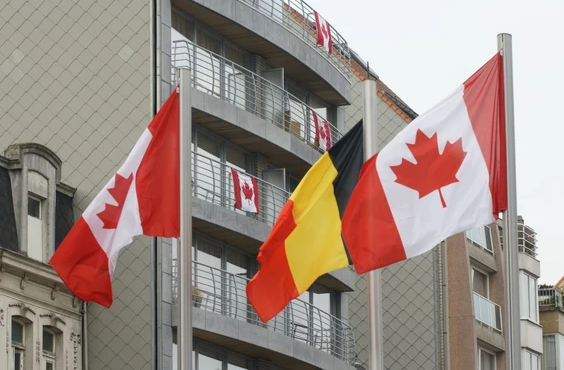Conference Theme: International Conference on Food and Global Insecurity: The Challenge of Africa
Conference Location: Toronto, Canada
Duration: Three days
Conference dates: 24 – 26 April 2025 (Latest Arrival in Toronto, Canada: Wednesday, 23 April 2025)
Target Participants
- Government officials
- Policymakers
- Researchers and academics
- Representatives from international organizations
- Non-governmental organizations (NGOs)
- Agricultural experts and practitioners
- Food industry professionals
- Humanitarian aid workers
- Community leaders from Africa and other regions
- Students and youth advocates
Visa for entry to Canada: (For those participants from countries requiring a visa to Canada)
The participants should contact the Canadian Embassy at least 8 weeks in advance, to obtain a visa with all the necessary documents. The organizers will provide, upon request, the letter of invitation required.
Fee
$650 (Six Hundred and Fifty Dollars Only) per person (Non-refundable)
Included in the Fee are
Workshop material, welcome reception, Coffee Breaks, Strategic Study tours, Gala night/Dinner in the occasion of the award of the certificates of participation
Not included in the Fee are
Accommodation, Travel expenses, local transportation, evening meals
Objective of the Conference
The conference aims to address the pressing issue of food insecurity in Africa and its implications for global stability. Its objectives include:
- Understanding the root causes and dynamics of food insecurity in Africa, including environmental, economic, social, and political factors.
- Exploring innovative strategies and interventions to enhance food production, distribution, and access in African countries.
- Examining the connections between food insecurity, conflict, migration, and other forms of global insecurity.
- Facilitating collaborations and partnerships among stakeholders to develop sustainable solutions for addressing food insecurity in Africa and beyond.
Program
The program will:
- Highlight technological innovations, policy frameworks, interactive workshops, panel discussions, financing mechanisms, and various dimensions of the challenge of food insecurity in Africa and provide a comprehensive framework for addressing this critical issue during the conference.
- Group Discussions
- Case studies and simulations
- Visits and study tours to strategic institutions, organizations, government agencies, private sectors, and historic/tourism sites in Toronto, Canada
Conference Modules/Topics for Presentation and Discussion:
- Root Causes of Food Insecurity:
- Environmental degradation and climate change
- Poverty and income inequality
- Lack of access to land, water, and other resources
- Population growth and urbanization
- Agricultural productivity challenges
- Political Instability, Conflict, and Food Insecurity:
- Impact of conflict on food production, distribution, and access
- Displacement and refugee crises
- Role of governance and institutions in exacerbating or mitigating food insecurity
- Conflict-sensitive approaches to addressing food insecurity.
- Community-Based Approaches to Food Security and Nutrition:
- Importance of community participation and empowerment
- Indigenous knowledge and traditional practices in food production and nutrition
- Community-led initiatives for improving food access and nutrition education.
- Case studies of successful community-based food security programs
- Innovative Agricultural Practices and Technologies:
- Sustainable agricultural practices (agroecology, conservation agriculture, etc.)
- Climate-smart agriculture and resilience-building strategies
- Adoption of modern technologies (precision farming, drones, biotechnology, etc.)
- Improving access to inputs, credit, and extension services for smallholder farmers
- Global Partnerships and Multilateral Cooperation:
- Role of international organizations (UN agencies, World Bank, etc.) in addressing food insecurity
- Donor coordination and aid effectiveness in agricultural development
- Public-private partnerships for investment in agriculture and food systems
- South-South cooperation and knowledge sharing
- Food Policy Development and Implementation:
- National food security policies and strategies
- Regulatory frameworks for food safety, quality, and standards
- Trade policies and their impact on food security
- Monitoring and evaluation of food security programs
- Innovations in Food Technology and Food Systems Management:
- Advances in food processing, preservation, and storage
- Value chain development and market linkages
- Food waste reduction and recycling
- Digital solutions for improving food distribution and logistics.
- Building Resilience and Integrating Food Security into Sustainable Development Goals:
- Linkages between food security, poverty reduction, and other SDGs
- Resilience-building strategies for vulnerable communities
- Social protection programs and safety nets
- Mainstreaming gender and youth empowerment in food security intervention
- Highlight will be Networking/connecting African academic and research institutions, ministries, agencies, and centers with Canadian institutions, innovators, research centers, and innovative food programs for exchange and partnerships.
All registered and paid participants will receive a detailed agenda and administrative note and procedures for the conference few weeks in advance. - All Conference Reports and Selected papers/presentations will be published annually.
- Friday, 25 April 2025 from 18h30-21h00, there will be Gala/networking Dinner.
- Saturday, 26 October 2024 from 10:00AM, will be Toronto sightseeing.
Certification
At the end of the conference, all participants will receive a Certificate of Participation.
Visa
For foreign participants requiring a visa to enter Canada, AGEFADD will provide a visa support letter upon receipt of payment and will accordingly, inform the local Canadian Embassies in the respective countries.
The documentation required for organizing the visa or participation are:
- A copy of the first two pages of a valid passport of the participant
- A copy of a filled-in or online registration form for participation (https://agefadd.eu/acic-payment)
- A copy of a bank confirmation that the amount of Six Hundred and Fifty Dollars Only ($650, Non-refundable) per participant, has been paid to the online payment portal of AGEFADD in Brussels, Belgium https://agefadd.eu/acic-payment, usually, 4-6 weeks before commencement of any conference.
Contact Us
For further information or to apply please contact:
Info/Conference Desk: info@agefadd.eu , abic@agefadd.eu


